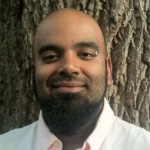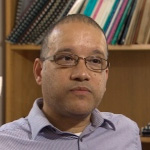Business mogul. Reality TV star. Political provocateur. President of the United States of America.
Donald Trump’s unorthodox journey to the White House isn’t the only reason his Electoral College victory in November’s election sent shockwaves around the world. His outsider campaign shattered political norms, defied establishment expectations and threatened to upend longstanding tenants of both foreign and domestic policy. In the process, Trump’s words and actions have struck deep, oft-unsettling nerves in American public life: issues of race, gender, economic fairness, even fundamental tenets of democracy itself.
Trump will take the oath of office at Friday’s inauguration ceremony just like he conducted most of his campaign: against a backdrop of swirling controversies. Alleged ties to Russia, Twitter fights with civil rights leader and Congressman John Lewis, debate over Republican plans to rescind President Obama’s health-care legislation, the lowest approval rating of any incoming president in modern history... is this a taste of what the next four years might have in store?
On Wednesday night, the Faculty of Arts and Social Sciences put together two all-star panels of experts from across the university and beyond — spanning fields like political science, journalism, business and history — to consider the implications of a Trump presidency. Organized by Frank Harvey (dean of the Faculty of Arts and Social Sciences), and moderated by Sylvain Charlebois (dean, Faculty of Management) and Camille Cameron (dean, Schulich School of Law), President Trump: Now What? explored topics such as immigration, class, race, journalism, global security, Canada-U.S. relations and more.
Ahead of the event, we invited panelists to share with our readers their thoughts on Trump’s election and what may lie ahead for America and the world under his presidency. Here's what some of them had to say:
 Brian Bow
Brian Bow
Associate Professor, Political Science; Director, Centre for the Study of Security and Development – ±«Óătv University
Studies Canada-U.S. relations, U.S. foreign policy
Trumpism is an outgrowth of Americans’ doubts about their ability to exercise global leadership, and about the benefits they derive as part of the liberal international order the US built after WWII. There are parallels with Nixon administration, which also sought to break — or at least renegotiate — the bargain underpinning the global order. But whereas Nixon had some success in shifting burdens to other states, but maintaining American leadership, Trump will probably only succeed in pulling back, diminishing US stature and influence, with no offsetting benefits. This will make the US weaker, and the world less stable.
 Mary Brooks
Mary Brooks
Professor Emerita, Faculty of Management – ±«Óătv University
Currently chair of the Marine Board of the US National Academies and member of the Executive Committee of the Transportation Research Board
In 1994 I investigated the impact of NAFTA on Canadian transportation companies and identified that the Canada US Trade Agreement and the North American Free Trade Agreement had failed to address North America’s transportation network challenges. Transportation is the life-blood of trade; without secure, seamless and well-maintained transportation networks, trade fails to deliver economic prosperity. In 2008, I consolidated 14 years’ worth of research into a book on freight transportation security and prosperity in North America. My insights were freshened last week during Transportation Research Board meetings in Washington. I expect to update the audience on what will happen to transportation networks in North America under the Trump administration.
 Sarah-Jane Corke
Sarah-Jane Corke
Assistant Professor, History – ±«Óătv University
Teaches 20th-century U.S. foreign relations; specializes in history of the CIA
Although the relationship between the intelligence community and Trump is a very hot topic right now I think it is symptomatic of the larger issues surrounding the Trump presidency. Trump has upended the traditional values that have defined American political-culture since 1945. We are entering a dangerous new time.
 Edna Keeble
Edna Keeble
Professor, Political Science – Saint Mary’s University (Dal alum: MA’86, PhD’94)
Teaching and research ‌interests centre on Canadian foreign policy, re-definitions of security, and linkages between politics, gender and sexuality
I think that a Trump presidency has already served as a wake-up call to those who hold a progressive view that the West has been moving forward to ending injustices. A decade ago, British sexuality studies scholar Jeffrey Weeks published The World We Have Won (London: Routledge, 2007), the title of which signalled progressive optimism, if not complacency. Evident in the protests against Trump’s inauguration, including the Women’s March on Washington on January 21, 2017, individuals and groups are “organizing, not agonizing” against a president who legally won due to the Electoral College, but (as African-American Rep. John Lewis stated) is illegitimate.
 Ajay Parasram
Ajay Parasram
Lecturer, International Development Studies/History – ±«Óătv University
Researches decolonization and public, political engagement
A Trump presidency extends the feeling of everyday precariousness lived by people of colour and women to everyone. In this way, his election is an opportunity for the public to witness the extension of deeply entrenched white and male privilege to the most powerful office on Earth. Conversely, his election enables an opportunity for political consciousness raising. My argument on Wednesday will be that we can and must counter the further normalization of misogyny and racism by understanding how these organizing principles are already normal, and then counter this process by actively normalizing public conversations about systemic white supremacy. Â
 Isaac Saney
Isaac Saney
Assistant Professor, History; Director, Transition Year Program – ±«Óătv University
Teaches African Nova Scotia history and researches history and politics of Cuba
My scholarly work and other activities connect with a Trump presidency in several ways. I’m interested in Black history in the Americas: what will a Trump presidency mean for race relations and the struggle against racism? My academic work centres on Cuba, and I am also the co-chair and national spokesperson for the Canadian Network On Cuba: will a Trump Presidency reverse Obama's Cuba policy and, therefore, return to the policy of open overt hostility? And I am very active in the anti-war movement, and key question is what a Trump presidency will mean for world peace, international law and international organizations (especially the UN).
 Kelly Toughill
Kelly Toughill
Associate Professor of Journalism – University of King's College
Award-winning journalist and director of King's School of Journalism
Is Donald Trump the saviour of journalism, or the end of journalism? One can use the election and its aftermath to argue either point. Subscriptions at legacy media organizations like the New York Times and the Atlantic rose in the wake of his campaign and election; many argue that the elevation of a chronic liar to president has reinvigorated the mission of journalism. On the other hand, there is credible research showing that totally fabricated stories generated more interest and engagement during the election than real news. Certainly the role of journalism has changed dramatically this year. The gatekeeping and watchdog functions of journalism have ceded to a new role: defining reality.
View the full list of panelists from Wednesday’s event.

